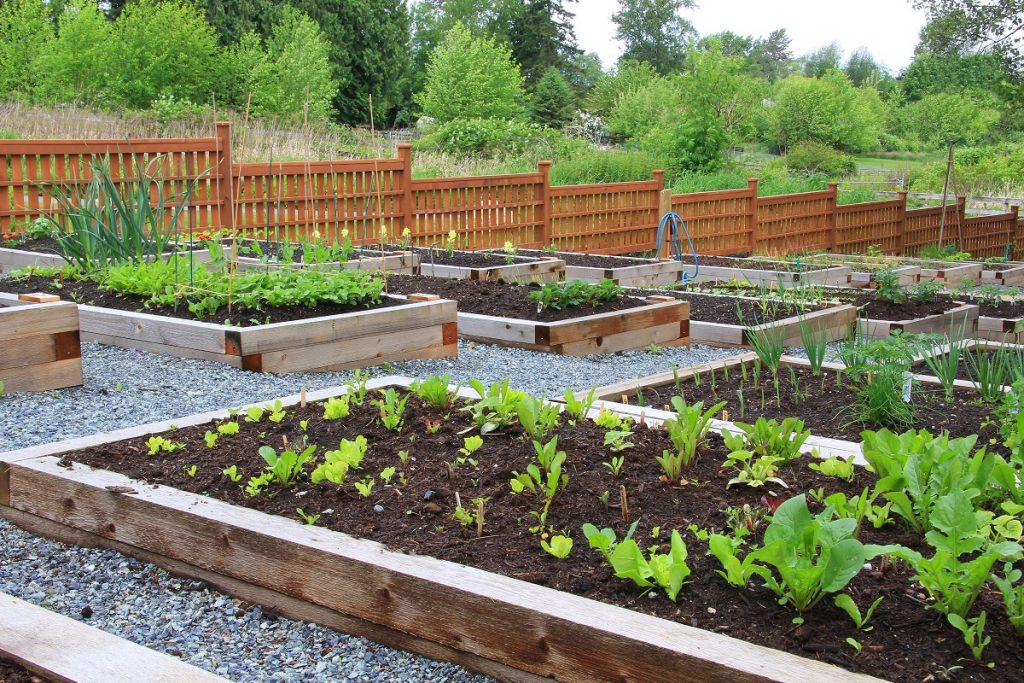Kitchen gardens often require less care than normal gardens since they are smaller. However, neglecting them may lead to a decrease in the expected yields. Such gardens are often used in growing vegetables that are often susceptible to diseases and pests. As such, there may be a need to regularly treat them with pesticides.
Soil Fertility
There are two common ways you may boost your garden’s soil fertility: fertilizers and natural decomposition. The latter may be achieved through the use of mulch which not only increases soil fertility but also conserves soil moisture. There are companies in Salt Lake City that supply mulch at an affordable price, with which you may place your order. The use of fertilizers also has a lot of benefits. They provide a faster way of improving the soil fertility of your kitchen garden in the short term. However, the prolonged use of organic fertilizer may affect the pH of your soil making it acidic. On the other hand, the use of mulch or other natural fertilizers such as manure tends to improve the soil structure of a given area. It prevents erosion, compaction, and crusting. For instance, soil erosion is decreased because mulch reduces the impact of rainfall on the soil.
Weeding
 This is another important aspect of maintaining your kitchen garden. Weeds tend to compete with other crops for space, water, and nutrients, which may reduce your garden’s yield. Weeding should be done in the early stages of farming. It should then be repeated several times whenever the weeds begin to grow again. The best way to eliminate the weeds is uprooting them. You may also settle for herbicides. Besides making the crops healthier, there are other benefits of weeding. For example, it alters the micro-climate below the plants. It allows the sun and wind to easily penetrate the soil, which tends to reduce the humidity of the soil. This, in turn, reduces the number of pests in the soil. Weeding also tends to make the soil loose, which allows water to penetrate with ease.
This is another important aspect of maintaining your kitchen garden. Weeds tend to compete with other crops for space, water, and nutrients, which may reduce your garden’s yield. Weeding should be done in the early stages of farming. It should then be repeated several times whenever the weeds begin to grow again. The best way to eliminate the weeds is uprooting them. You may also settle for herbicides. Besides making the crops healthier, there are other benefits of weeding. For example, it alters the micro-climate below the plants. It allows the sun and wind to easily penetrate the soil, which tends to reduce the humidity of the soil. This, in turn, reduces the number of pests in the soil. Weeding also tends to make the soil loose, which allows water to penetrate with ease.
Irrigation
Water is an important requirement for plant growth. In fact, it is essential even for germination purposes. All plants utilize water for cell division and cell enlargement. Water also dissolves fertilizers and transports the nutrients to different parts of a plant. Ideally, the main source of water in a kitchen garden is rain or precipitation from other underground sources. However, there may be a need to water the garden, especially during dry seasons. When watering the plants, be sure to do it in a way that limits water spillage on the plants’ foliage. Soaker hoses and drip irrigation are the best methods to use.
The best way to ensure that you get a bumper harvest from your kitchen garden is to maintain it properly. There are many natural and artificial methods that you may use to ensure that your kitchen garden is free from pests and other diseases. The measures that you put in place to maintain your kitchen garden will determine the quality and quantity of harvest that you get at the end of the season.

